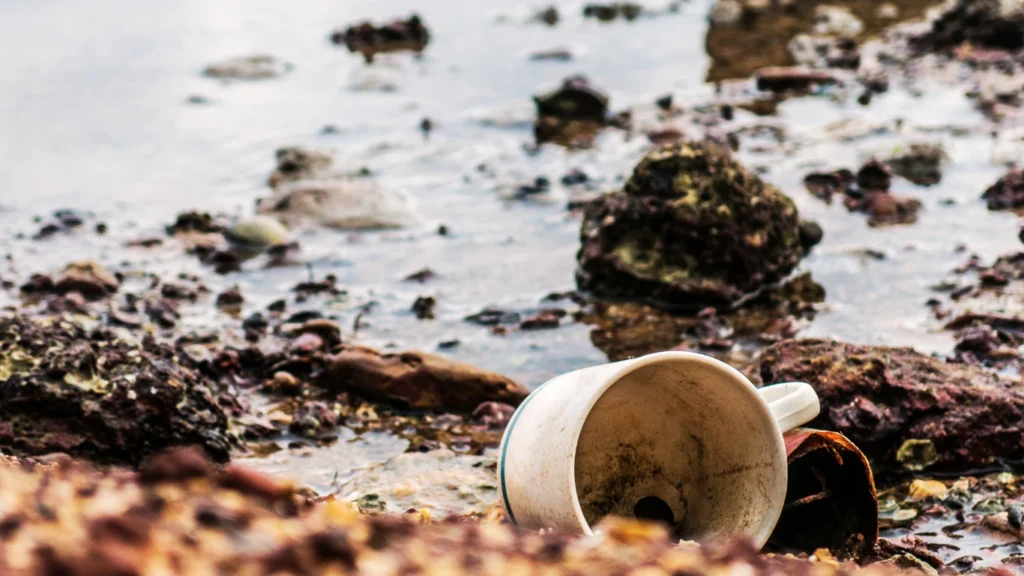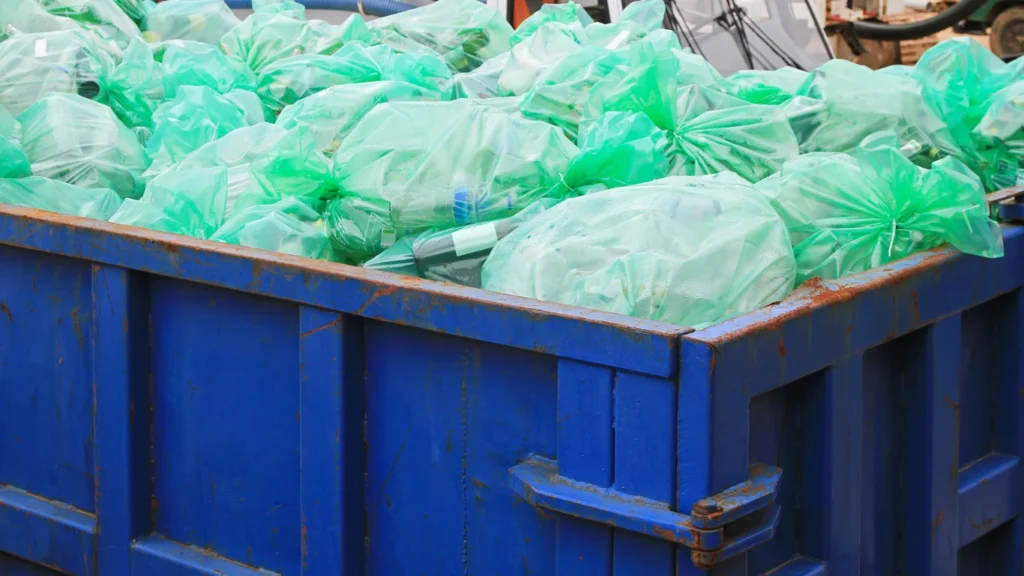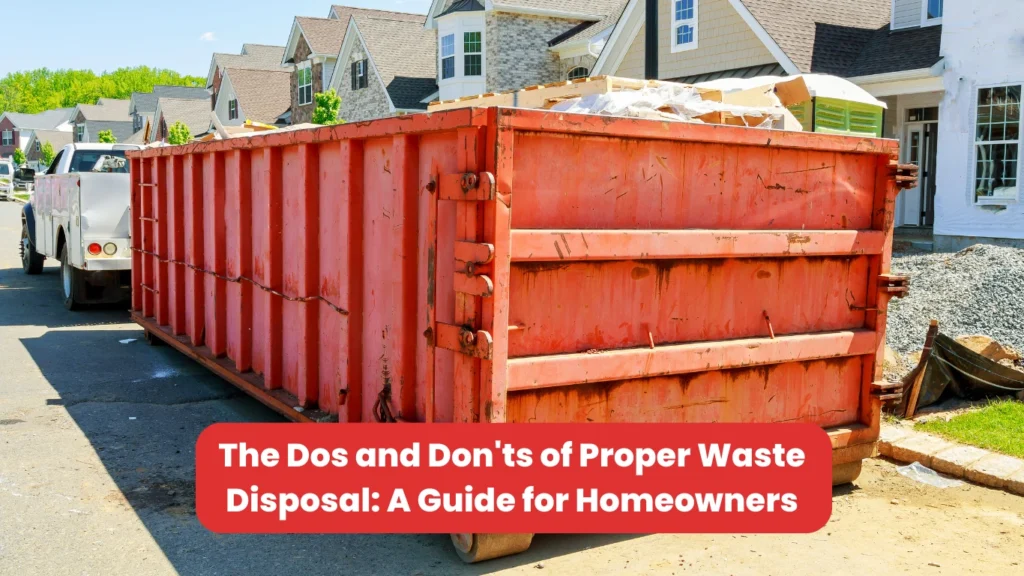Proper waste disposal is not just an environmental responsibility; it’s also essential for the well-being of your community and the efficiency of your daily life.
Homeowners often underestimate the impact they can make by following responsible waste disposal practices. In this comprehensive guide, we’ll explore the dos and don’ts of proper waste disposal, shedding light on the best practices every homeowner should embrace.
II. The Environmental Impact of Improper Waste Disposal

A. Consequences of Incorrect Waste Disposal Methods
When waste is not disposed of correctly, it can have far-reaching consequences for our environment. Some of the major issues associated with improper waste disposal include:
- Land Pollution: Landfills filled with improperly disposed waste can contaminate soil and groundwater, leading to long-term damage to ecosystems.
- Air Pollution: Incineration of waste without proper controls can release harmful pollutants and greenhouse gasses into the atmosphere, contributing to air pollution and climate change.
- Water Pollution: Dumping hazardous waste into water bodies can harm aquatic life and contaminate drinking water sources, endangering human health.
- Habitat Destruction: Improper waste disposal can lead to habitat destruction and the displacement of wildlife, disrupting the delicate balance of ecosystems.
B. Benefits of Responsible Waste Management for the Environment
On the flip side, responsible waste management brings numerous benefits to the environment:
- Reduced Pollution: Proper disposal methods minimize the release of pollutants into the environment, leading to cleaner air, soil, and water.
- Resource Conservation: Recycling and reusing materials reduce the need for virgin resources, conserving energy and raw materials.
- Lower Greenhouse Gas Emissions: Proper waste management helps lower the carbon footprint by reducing the release of methane and other harmful gasses from landfills.
- Preservation of Natural Resources: Efficient waste management helps preserve natural habitats and biodiversity by reducing habitat destruction and pollution.
III. The Do’s of Proper Waste Disposal

A. Segregation of Waste
- Importance of Separating Recyclables from Non-Recyclables
Responsible waste management starts with effective segregation. Separating recyclables from non-recyclables is a fundamental step in reducing our environmental footprint. By recycling materials like paper, plastic, glass, and metal, we conserve natural resources and reduce the energy required for manufacturing new products.
- Tips on How to Effectively Segregate Waste at Home
-
- Set up designated recycling bins in your home for easy separation.
- Clearly label containers to indicate which materials belong in each bin.
- Rinse containers to remove any leftover food or residue before recycling.
- Flatten cardboard boxes to save space in recycling bins.
B. Utilizing Proper Containers
- Significance of Using Suitable Bins and Dumpsters
Choosing the right containers for waste disposal is crucial for efficient and responsible management. Properly sized bins and dumpsters help prevent overflows and ensure that waste is safely contained. This also helps prevent environmental hazards, such as littering.
Red Rhino Dumpster Rental offers a range of dumpster sizes, including those specifically tailored to the needs of homeowners in Fort Collins and other service areas in Northern Colorado. Our services provide a convenient and reliable solution for waste disposal, ensuring that your waste is handled in an environmentally-conscious manner.
C. Composting Organic Waste
- Benefits of Composting for the Environment
Composting organic waste is a powerful way to reduce the amount of waste that ends up in landfills. When organic materials like food scraps, yard waste, and plant trimmings decompose naturally, they become nutrient-rich compost that can be used to enrich soil.
By composting, homeowners contribute to healthier soil, which supports plant growth and reduces the need for chemical fertilizers. Additionally, composting helps reduce greenhouse gas emissions that occur when organic matter breaks down in landfills.
- Tips on How Homeowners Can Start Composting at Home
-
- Set up a designated composting area in your backyard.
- Include a mix of green (nitrogen-rich) and brown (carbon-rich) materials.
- Avoid composting meat, dairy, and oily foods to prevent odors and pests.
D. Educating Household Members
- Encourage Family Members to be Mindful of Proper Waste Disposal
Responsible waste management is a collective effort. Encourage all members of your household, including children, to be conscious of their waste disposal habits. Teach them the importance of recycling, composting, and using designated containers for different types of waste.
Establish clear guidelines and make it a routine part of your household’s activities. By instilling these practices early on, you’re shaping future generations of environmentally-conscious individuals.
IV. The Don’ts of Proper Waste Disposal

A. Avoiding Illegal Dumping
Illegal dumping poses significant environmental and legal risks. Not only can it contaminate soil and water sources, but it’s also subject to hefty fines and penalties. Instead of resorting to illegal dumping, consider the following responsible alternatives:
- Use Authorized Disposal Sites: Designated waste disposal sites and recycling centers exist for a reason. These facilities are equipped to handle various types of waste safely and responsibly. By using them, you ensure that your waste is managed in an environmentally friendly manner and in compliance with local regulations.
- Engage Professional Services: When in doubt or when dealing with larger quantities of waste, consider hiring a reputable waste management service like Red Rhino Dumpster Rental. Our expertise not only simplifies the waste disposal process but also guarantees that your waste is handled in a legal and environmentally conscious way. Professional services are especially valuable for construction debris, renovation projects, or any situation where proper disposal is crucial.
B. Not Mixing Hazardous and Non-Hazardous Waste
Combining hazardous and non-hazardous waste can have severe consequences. Chemical reactions can occur, leading to dangerous situations for both humans and the environment. To avoid these risks:
- Identify Hazardous Materials: Take the time to educate yourself about common household hazardous waste items. These may include batteries, paints, solvents, electronics, pesticides, and certain cleaning products. Understanding what constitutes hazardous waste is the first step in safe disposal.
- Proper Disposal of Hazardous Waste: Once identified, hazardous waste should be handled with extreme care. Do not mix it with regular household waste. Instead, take hazardous materials to specialized disposal facilities or participate in dedicated collection programs in your area. These programs are designed to safely manage and dispose of hazardous waste, minimizing the potential harm to the environment and public health.
C. Discouraging Overfilling Containers
Overfilling waste containers can lead to a range of problems, from spillage and litter to difficulties in transportation. To manage waste effectively without overfilling:
- Select Adequate Container Sizes: It’s crucial to ensure that your waste containers, whether bins or dumpsters, are appropriately sized for your needs. When choosing a container size, consider the volume of waste you expect to generate. Red Rhino offers a variety of container sizes to accommodate various projects, so you can always find one that suits your requirements.
- Implement Efficient Waste Compaction: Whenever possible, compact waste to maximize container space. Using techniques like flattening cardboard boxes or breaking down large items can help you make the most of the available space. Efficient waste compaction is especially important for larger projects with limited disposal options, as it reduces the frequency of container pickups and associated costs.
V. Northern Colorado Dumpster Rental: Simplifying Waste Management
Our Northern Colorado dumpster rental services are designed to simplify waste management for homeowners. Here’s why you should consider renting a dumpster from Red Rhino:
- Convenience: Renting a dumpster means you have a dedicated and convenient space to dispose of waste, whether it’s from a home renovation project, yard cleanup, or decluttering.
- Efficiency: Our dumpsters can handle large volumes of waste, reducing the need for multiple trips to the landfill or recycling center.
- Flexibility: We offer various dumpster sizes to suit your specific needs, ensuring you don’t pay for more space than you require.
Our dumpster rental services cater specifically to the needs of homeowners in Northern Colorado. Whether you’re upgrading your kitchen, redoing your landscaping, or simply cleaning out your attic, we have the right dumpster for you.
VI. Conclusion
Proper waste disposal is a responsibility that every homeowner should take seriously. By following the dos and don’ts of waste disposal, you contribute to a cleaner environment and a safer community.
At Red Rhino Dumpster Rental, we are committed to providing fast, efficient, and reliable dumpster rental services to support your construction and home improvement endeavors and proper waste disposal. Make your next project a breeze by partnering with Red Rhino and experiencing the convenience and peace of mind that comes with responsible waste disposal.
Contact us today to learn more about our dumpster rental options and take the first step toward a cleaner and greener home renovation experience.


